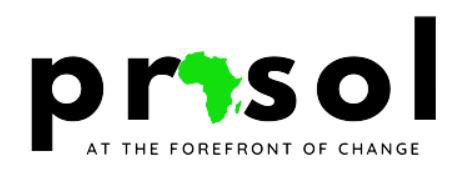In today’s fast-paced world, productivity is the key to success in the workplace. Whether you’re an entrepreneur or an employee, improving your productivity can have a significant impact on your professional growth and success. But with so many distractions and time-consuming tasks, it can be challenging to stay focused and get things done efficiently. That’s why I have compiled a list of 15 practical tips on how to improve productivity at work. From effective time management strategies to creating a conducive work environment, these tips will help you boost your productivity, achieve your goals and succeed in your career.
1. Set clear goals and priorities: Define what you want to accomplish and break down your tasks into smaller, more manageable steps. Prioritize your tasks by importance and urgency. For example: If your goal is to increase sales, break it down into smaller tasks like researching new leads, creating marketing campaigns, and reaching out to potential clients. Prioritize your tasks based on which ones are most likely to generate revenue quickly.
2. Create a daily routine: Establish a routine that includes regular breaks and blocks of time for focused work. This can help you stay on track and avoid distractions. For example: Set aside specific times of the day for checking and responding to emails, scheduling meetings, and completing tasks. Take regular breaks throughout the day to refresh your mind and avoid burnout.
3. Avoid multitasking: Focus on one task at a time to improve your concentration and avoid getting overwhelmed. For example: If you’re working on a project, close your email and other distracting apps and focus solely on the task at hand until it’s complete.
4. Delegate tasks: Delegate tasks that don’t require your direct attention to others on your team. This can free up your time and allow you to focus on more important tasks. For example: If you’re a manager, delegate administrative tasks like scheduling meetings or taking notes to an assistant.
5. Use productivity tools: Utilize productivity tools like project management software or task lists to help you stay organized and focused. For example: Use software like Asana or Trello to track your tasks, deadlines, and progress.
6. Take breaks: Take regular breaks to rest your mind and recharge your energy. This can help prevent burnout and increase your productivity in the long run. For example: Take a walk, listen to music, or practice mindfulness exercises during your break.
7. Set deadlines: Establish clear deadlines for yourself and stick to them. This can help you stay focused and avoid procrastination. For example: Set a deadline for completing a project or task and break it down into smaller deadlines for each step.
8. Avoid distractions: Identify and eliminate distractions that could derail your productivity, such as social media, email notifications, or noisy coworkers. For example: Use noise-cancelling headphones or work in a quieter area to minimize distractions.
9. Stay organized: Keep your workspace organized and tidy to help you stay focused and minimize stress. For example: Keep your desk clutter-free, file important documents in folders, and use labels to organize your supplies.
10. Use the Pomodoro technique: Break your workday into short, focused intervals of work (usually 25 minutes) with short breaks in between. For example: Use a timer or app to break your workday into focused intervals, then take a five-minute break before starting the next interval.
11. Take care of your health: Prioritize your physical and mental health by getting enough sleep, eating a healthy diet, and staying active. This can help you stay focused and energized at work. For example: Take a walk during your lunch break, drink plenty of water, and avoid consuming too much caffeine.
12. Prioritize difficult tasks: Tackle your most challenging tasks when your energy and focus are at their peak. For example: If you’re a morning person, tackle your most difficult tasks first thing in the morning, when your energy and focus are highest.
13. Say no to non-essential tasks: Avoid taking on tasks that aren’t essential to your job or goals. For example: Politely decline requests to attend meetings or events that aren’t related to your job responsibilities.
14. Seek feedback: Ask for feedback from your co-workers or manager to help you improve your work and identify areas for growth. For example: Ask your co-workers for feedback on management decisions or policy guidelines.
15. Take Care of Yourself: It’s important to take care of yourself if you want to improve your productivity at work. When you neglect your health and well-being, it can negatively impact your ability to focus, work efficiently, and produce quality work. For example: You need to prioritize sleep. A good night’s sleep is essential for productivity. Make sure you are getting enough sleep each night to ensure you are alert and focused at work.

